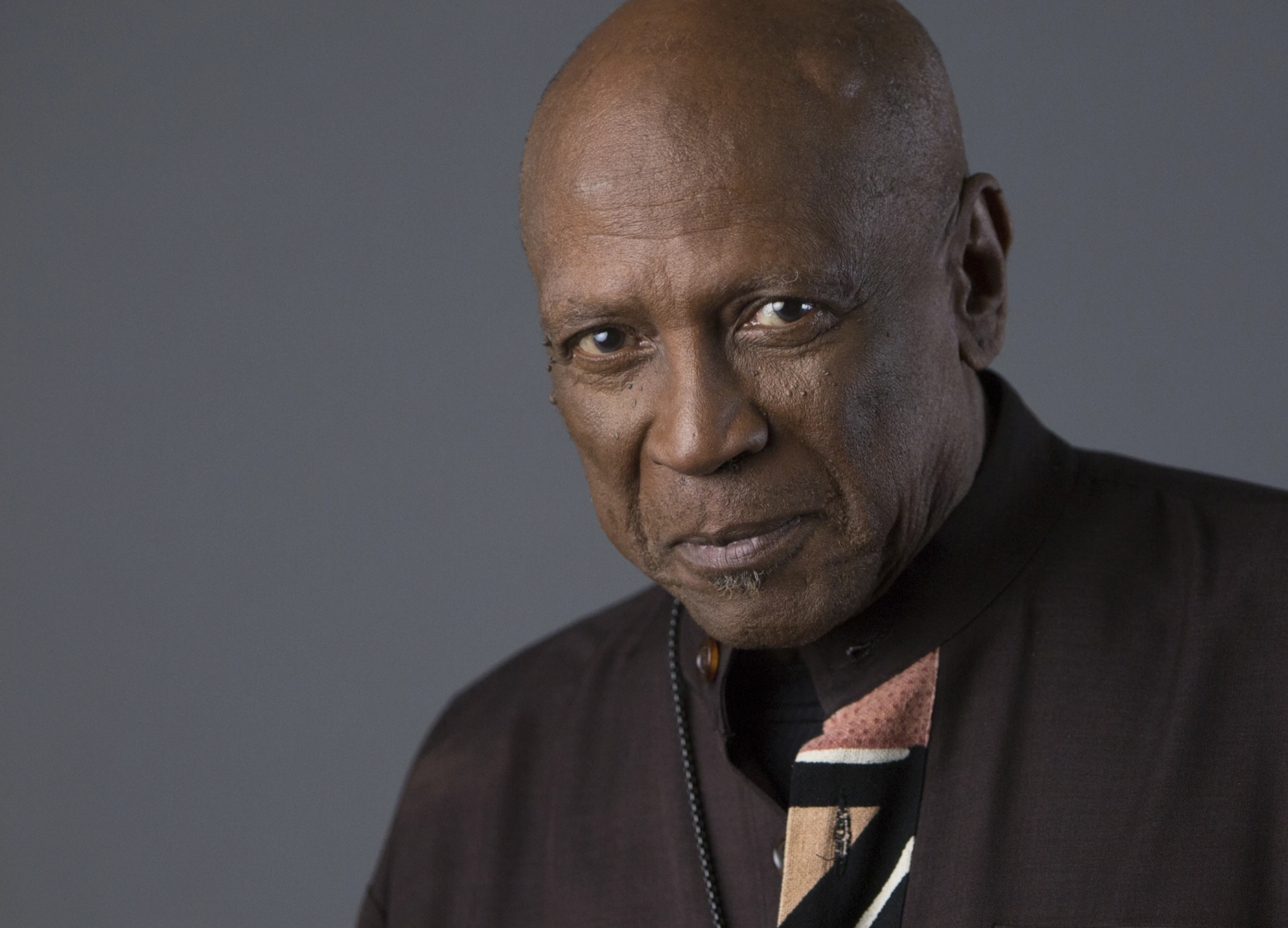
Louis Gossett Jr., 1st Black man to win supporting actor Oscar, dies at 87
Louis Gossett Jr., the first Black man to win a supporting actor Oscar and an Emmy winner for his role in the seminal TV miniseries “Roots,” has died. He was 87.
Gossett’s first cousin Neal L. Gossett told The Associated Press that the actor died in Santa Monica, California. A statement from the family said Gossett died Friday morning. No cause of death was revealed.
Gossett’s cousin remembered a man who walked with Nelson Mandela and who also was a great joke teller, a relative who faced and fought racism with dignity and humor.
“Never mind the awards, never mind the glitz and glamor, the Rolls-Royces and the big houses in Malibu. It’s about the humanity of the people that he stood for,” his cousin said.
“More than anything, it was a huge affirmation of my position as a Black actor,” he wrote in his 2010 memoir, “An Actor and a Gentleman.”
He had earned his first acting credit in his Brooklyn high school’s production of “You Can’t Take It with You” while he was sidelined from the basketball team with an injury.
“I was hooked — and so was my audience,” he wrote in his memoir.
AP correspondent Donna Warder reports actor Lou Gossett Jr. has died at age 87.
His English teacher urged him to go into Manhattan to try out for “Take a Giant Step.” He got the part and made his Broadway debut in 1953 at age 16.
Gossett attended New York University on a basketball and drama scholarship. He was soon acting and singing on TV shows hosted by David Susskind, Ed Sullivan, Red Buttons, Merv Griffin, Jack Paar and Steve Allen.
Gossett became friendly with James Dean and studied acting with Marilyn Monroe, Martin Landau and Steve McQueen at an offshoot of the Actors Studio taught by Frank Silvera.
In 1959, Gossett received critical acclaim for his role in the Broadway production of “A Raisin in the Sun” along with Sidney Poitier,Ruby Dee and Diana Sands.
He went on to become a star on Broadway, replacing Billy Daniels in “Golden Boy” with Sammy Davis Jr. in 1964.
Gossett went to Hollywood for the first time in 1961 to make the film version of “A Raisin in the Sun.” He had bitter memories of that trip, staying in a cockroach-infested motel that was one of the few places to allow Black people.
In 1968, he returned to Hollywood for a major role in “Companions in Nightmare,” NBC’s first made-for-TV movie that starred Melvyn Douglas, Anne Baxter and Patrick O’Neal.
Within minutes, he was stopped by eight sheriff’s officers, who had him lean against the car and made him open the trunk while they called the car rental agency before letting him go.
“Though I understood that I had no choice but to put up with this abuse, it was a terrible way to be treated, a humiliating way to feel,” Gossett wrote in his memoir. “I realized this was happening because I was Black and had been showing off with a fancy car — which, in their view, I had no right to be driving.”
After dinner at the hotel, he went for a walk and was stopped a block away by a police officer, who told him he broke a law prohibiting walking around residential Beverly Hills after 9 p.m. Two other officers arrived and Gossett said he was chained to a tree and handcuffed for three hours. He was eventually freed when the original police car returned.
In the late 1990s, Gossett said he was pulled over by police on the Pacific Coast Highway while driving his restored 1986 Rolls Royce Corniche II. The officer told him he looked like someone they were searching for, but the officer recognized Gossett and left.
He founded the Eracism Foundation to help create a world where racism doesn’t exist.
Gossett made a series of guest appearances on such shows as “Bonanza,” “The Rockford Files,” “The Mod Squad,” “McCloud” and a memorable turn with Richard Pryor on “The Partridge Family.”
“There had to be a reason for my escaping this bullet,” he wrote.
Louis Cameron Gossett was born on May 27, 1936, in the Coney Island section of Brooklyn, New York, to Louis Sr., a porter, and Hellen, a nurse. He later added Jr. to his name to honor his father.
“The Oscar gave me the ability of being able to choose good parts in movies like ‘Enemy Mine,’ ‘Sadat’ and ‘Iron Eagle,’” Gossett said in Dave Karger’s 2024 book “50 Oscar Nights.”
He said his statue was in storage.
“I’m going to donate it to a library so I don’t have to keep an eye on it,” he said in the book. “I need to be free of it.”
Gossett appeared in such TV movies as “The Story of Satchel Paige,” “Backstairs at the White House, “The Josephine Baker Story,” for which he won another Golden Globe, and “Roots Revisited.”
But he said winning an Oscar didn’t change the fact that all his roles were supporting ones.
He played an obstinate patriarch in the 2023 remake of “The Color Purple.”
Gossett struggled with alcohol and cocaine addiction for years after his Oscar win. He went to rehab, where he was diagnosed with toxic mold syndrome, which he attributed to his house in Malibu.
In 2010, Gossett announced he had prostate cancer, which he said was caught in the early stages. In 2020, he was hospitalized with COVID-19.
He also is survived by sons Satie, a producer-director from his second marriage, and Sharron, a chef whom he adopted after seeing the 7-year-old in a TV segment on children in desperate situations. His first cousin is actor Robert Gossett.
Gossett’s first marriage to Hattie Glascoe was annulled. His second, to Christina Mangosing, ended in divorce in 1975 as did his third to actor Cyndi James-Reese in 1992.

